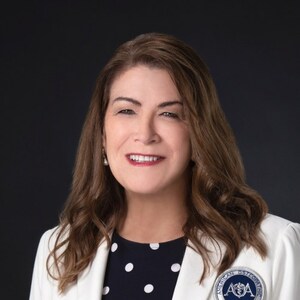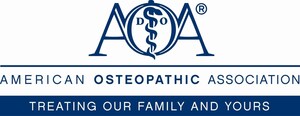CHICAGO, June 21, 2018 /PRNewswire-USNewswire/ -- A pilot program in Philadelphia community health centers is teaching patients to approach happiness as a learned skill, rather than a fleeting emotion. The goal, according to psychologists and osteopathic physicians, is to boost their mood and overall health.
The program, known as "A Happier You", is rooted in positive psychology, a practice that helps people focus on their strengths rather than problems or deficiencies. Created by the Philadelphia College of Osteopathic Medicine, the classes align with the osteopathic philosophy that mental, physical and emotional health are intertwined, with each aspect having the potential to help or harm the others.
"Our brains evolved to pay more attention to negative information as a means of survival. But in our modern lives, that has become counterproductive," explains Scott Glassman, PsyD, creator of "A Happier You." "It takes a concentrated effort and group support to override that negativity bias—and that's exactly what our program provides."
Dr. Glassman reminds participants that the course is not intended to address mental health issues, like depression. Instead, it is a workshop to help people hone their ability to feel happy, which he characterizes as a skill. Each week participants focus on a new aspect of happiness, including:
- Positive events
- Successes and personal strengths
- Gratitude
- Humor
- Enjoyable and meaningful activities
- Acts of kindness
- Love
The group is assigned "happy work" to complete over the next week. The exercises help the brain focus on positive thoughts and feelings. With practice, taking a positive perspective can become more reflexive and automatic, Glassman says. Once that skill is established, people start actively planning to improve their lives, creating a cycle of positive feedback.
Dr. Glassman notes that he and the program facilitators don't expect people to always feel happy. Negative events are part of life and feeling bad at appropriate times is necessary. In those instances, they encourage participants to try sitting with a sad or upset feeling, knowing it will pass.
"We coach people to take a distanced view of their problems, as if seeing them from a balcony," says Dr. Glassman. "This helps the pain to feel a little less personal and allows for perspective that may reveal a silver lining."
After a few sessions, Dr. Glassman notices participants are increasingly able to find something positive in their everyday lives—even amidst real turmoil. The group becomes more energized, seeing the best in themselves and each other.
This phenomenon is expected. Research in psychology has shown that happy people are drawn together and buoyed by one another. Dr. Glassman hopes the program will trigger the social spread of positive thinking and happiness, where people who complete the program regularly spark positive feelings in others at work, school, and home.
Peter Bidey, DO, a family medicine physician in Philadelphia, noted changes in his patients who participated, including those struggling with multiple chronic conditions and personal challenges.
"They came out feeling motivated and optimistic. Ultimately, I think it made them more invested in their treatment plans, which is everything when trying to get healthy," Dr. Bidey said.
About the AOA
The American Osteopathic Association (AOA) represents nearly 137,000 osteopathic physicians (DOs) and osteopathic medical students; promotes public health; encourages scientific research; serves as the primary certifying body for DOs; and is the accrediting agency for osteopathic medical schools. To learn more about DOs and the osteopathic philosophy of medicine, visit www.DoctorsThatDO.org.
SOURCE American Osteopathic Association
Related Links
WANT YOUR COMPANY'S NEWS FEATURED ON PRNEWSWIRE.COM?
Newsrooms &
Influencers
Digital Media
Outlets
Journalists
Opted In






Share this article